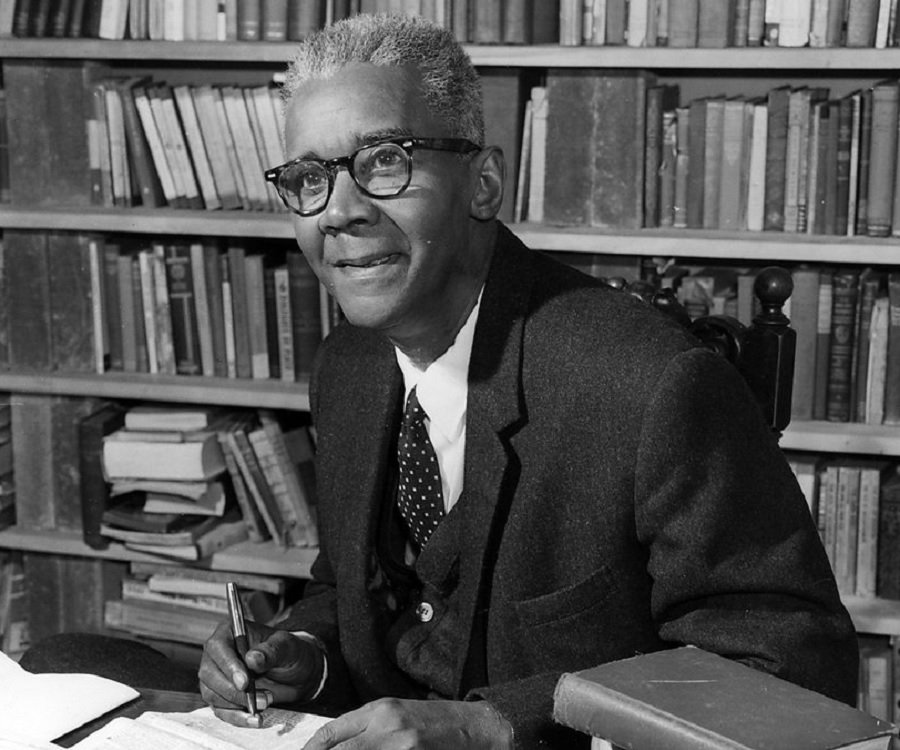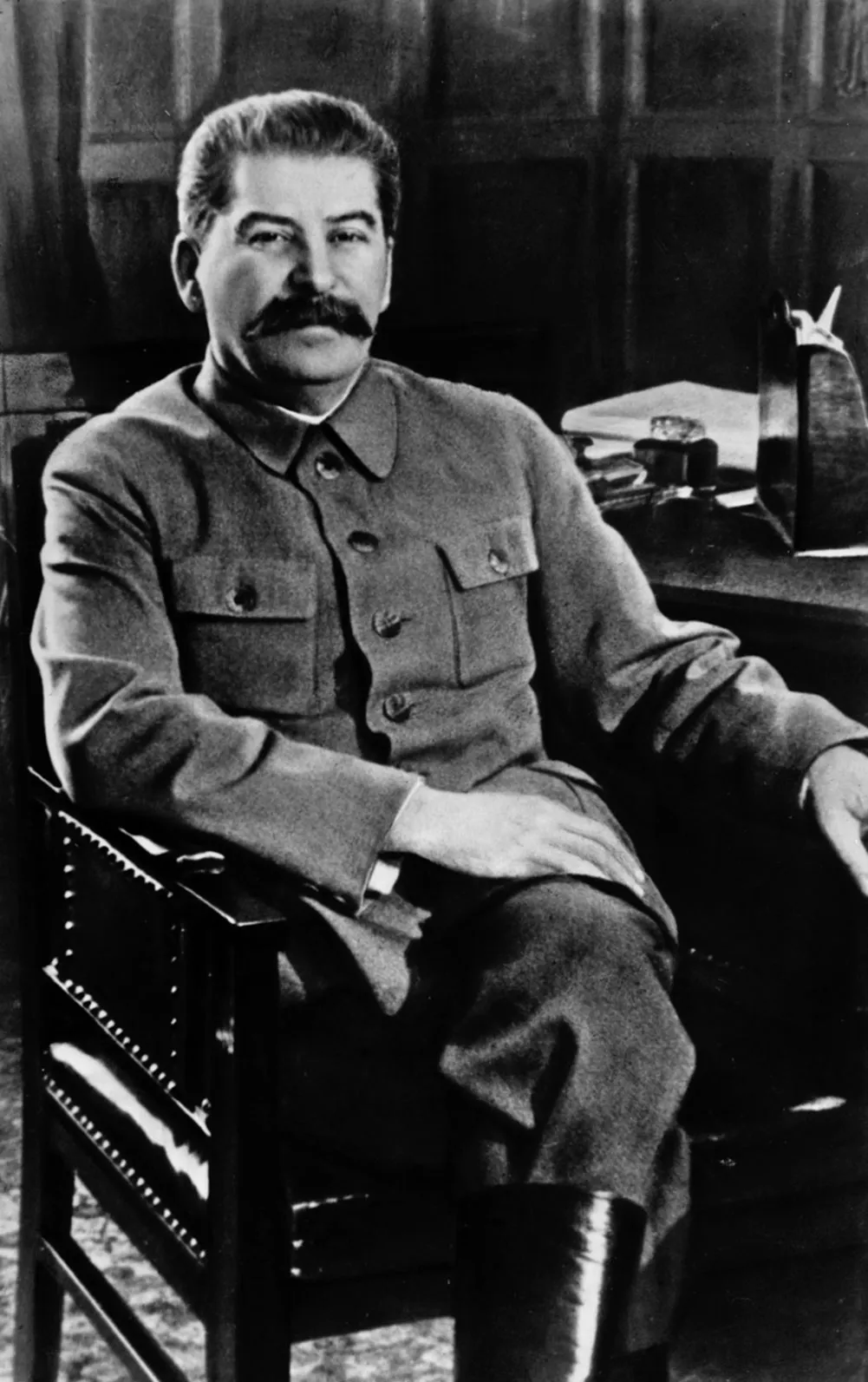Joseph Vissarionovich Stalin, was born in Gori, Georgia on 21st December, 1879. was a Soviet revolutionary and politician who was the leader of the Soviet Union from 1924 until his death in 1953. He held power as General Secretary of the Communist Party of the Soviet Union (1922–1952) and Chairman of the Council of Ministers of the Soviet Union (1941–1953).
The son of a humble Georgian shoemaker, at the age of fifteen Stalin entered the Orthodox seminary in Tbilisi on a scholarship, where he proved to be a brilliant student, although he was expelled when he was caught distributing propaganda for the Georgian Socialist Party, which he had joined in 1898.
While studying at the seminary he joined a secret organization called Messame Dassy (the Third Group). Members were supporters of Georgian independence from Russia. Some were also socialist revolutionaries and it was through the people he met in this organization that Stalin first came into contact with the ideas of Karl Marx.
Soon after leaving the seminary he began reading Iskra (the Spark), the newspaper of the Social Democratic Labour Party (SDLP). It was the first underground Marxist paper to be distributed in Russia. It was printed in several European cities and then smuggled into Russia by a network of SDLP agents. The editorial board included Lenin and Trotsky
In 1901 Stalin joined the Social Democratic Labour Party and whereas most of the leaders were living in exile, he stayed in Russia where he helped to organize industrial resistance to Tsarism. he would end up being arrested and exiled to Siberia for coordinating a Strike at the large Rothschild plant at Batum.
At the Second Congress of the Social Democratic Labour Party held in London in 1903, there was a dispute between Lenin and Julius Martov over the future of the SDLP. Lenin argued for a small party of professional revolutionaries with a large fringe of non-party sympathizers and supporters. Martov disagreed believing it was better to have a large party of activists.
As Lenin and Plekhanov won most of the votes, their group became known as the Bolsheviks (after bolshinstvo, the Russian word for majority), whereas Martov's group were dubbed Mensheviks (after menshinstvo, meaning minority). Stalin who was still in prison in Siberia, decided he favoured the Bolsheviks in this dispute. He escaped on 5th January 1904. Lenin was impressed with Stalin's achievements in the Caucasus and in December 1905, he was invited to meet him in Finland.
Stalin would Settled in Baku to expand the influence of bolsheviks in the Caucasus, Joseph Stalin worked closely with his friends in developing the political consciousness of the workers in the region. The workers in the oil fields belonged to a union under the influence of the Bolsheviks, and Stalin was one of the Union's delegates
He returned to St. Petersburg in February 1912, he became editor of Pravda. Lenin, who described him as my "wonderful Georgian" arranged for him to join the Party's Central Committee, he was Exiled to Siberia on 1913. he would return to St Petersburg in 1917 with the overthrow of the Tzar and the pardon to all political prisoners by Prince Lvov. He would join the then Petrograd Soviet
At this time, Stalin, like most Bolsheviks, took the view that the Russian people were not ready for a socialist revolution. He therefore called for conditional support of the Provisional Government. He also urged policies that would tempt the Mensheviks into forming an alliance. However, he disagreed with Molotov, who was calling for the immediate overthrow of Prince Lvov.
When Lenin returned to Russia on 3rd April, 1917, he announced what became known as the April Theses. Lenin attacked Bolsheviks for supporting the Provisional Government. Instead, he argued, revolutionaries should be telling the people of Russia that they should take over the control of the country. Lenin ended his speech by telling the assembled crowd that they must "fight for the social revolution, fight to the end, till the complete victory of the proletariat".
On 26th October, 1917, the All-Russian Congress of Soviets met and handed over power to the Soviet Council of People's Commissars. Lenin was elected chairman and Joseph Stalin (Nationalities), As a Georgian and a member of a minority group who had written about the problems of non-Russian peoples living under the Tsar, Stalin was seen as the obvious choice for the post as Minister of Nationalities. Nearly half of the population of the Empire was made up of non-russians. To show his good faith, Stalin appointed several assistants from the various nationalities within Russia.
At the Tenth Party Congress in April 1922, Lenin proposed a resolution that would ban all factions within the party. Stalin was appointed as General Secretary and was now given the task of dealing with the "factions and cliques" in the Communist Party
Following Lenin's death in 1924, There was a big power struggle in the party between 3 main factions. The Left opposition (trotsky), the Centre (Stalin) and the Right opposition (Bukharin).
Trotsky had argued in 1917 that the Bolshevik Revolution was doomed to failure unless successful revolutions also took place in other countries such as Germany and France. In 1924 Stalin began talking about the possibility of completing the "building of socialism in a single country". Nikolay Bukharin joined the attacks on Trotsky asserted that Trotsky's theory of "permanent revolution" was anti-Leninist. in 1925 Trotsky was removed from the goverment and 2 years later from the Party and exiled for Factionalism.
During the Collectivation of Land Stalin Blame the policies of Bukharin for the failure of the 1927 harvest. By this time kulaks made up 40% of the peasants in some regions, He also advocated the setting up of collective farms. By 1935, 94 per cent of crops were being produced by peasants working on collective farms.
With no start-up capital, little international trade and virtually no modern infrastructure, Stalin's government financed industrialization from the profits made by state-owned factories and enterprises, trade, banks and transportation.
In 1926-1927, about one billion rubles were invested in industry; three years later, about 5 billion rubles could already be invested in it. The 1930s saw the production, for the first time in the history of the Soviet Union, of a wide range of new products, including motorcycles, watches and cameras, as well as the machines and tools needed to produce these and other goods.
To avoid the isolation of the Soviet Republic, the USSR entered the League of Nations (1934), and had a rapprochement with Great Britain and France.
Stalin had always opposed fascism and Hitler, on August 15, 1939 he tried to make a pact with Britain and France to attack Nazi Germany. Stalin proposed to send 1 million soldiers to fight Hitler, but the capitalist countries refused. On August 23, 1939, the Soviet Union and Germany signed a non-aggression pact in Moscow.
After the outbreak of World War II, however, and considering that the fall of England was imminent, Hitler ordered an attack on the Soviet Union. The Red Army could not contain the main German attacks at the beginning of the Barbarossa Plan, since more than 70% of the German military industry was concentrated on the eastern front for the invasion of the USSR.
When Germany reached Moscow, Stalin did not flee and even made in November a speech commemorating the victory of Soviet power, soon began to take control of the situation and Stalin was appointed Supreme Commander in Chief of the Red Army. Unlike the German forces and Hitler's hierarchy, the Soviet military autonomy took its generals into democratic decision-making and had some of its best generals, such as Zhukov and Vatutin, brought in from the frontier, also allowing the dispatch from the eastern fronts of thousands of Siberian troops already trained in combat with the Japanese.
On the night of Sunday, March 1, he was found lying on the floor, dressed in the clothes he had worn the night before and barely able to speak. Some doctors ruled that Stalin had suffered a stroke and had collapsed. His death just like Lenin's would end up in a 3-way Power struggle between Lavrentiy Beria, Georgy Malenkov and Nikita Khrushchev
Megathreads and spaces to hang out:
reminders:
- 💚 You nerds can join specific comms to see posts about all sorts of topics
- 💙 Hexbear’s algorithm prioritizes comments over upbears
- 💜 Sorting by new you nerd
- 🌈 If you ever want to make your own megathread, you can reserve a spot here nerd
- 🐶 Join the unofficial Hexbear-adjacent Mastodon instance toots.matapacos.dog
Links To Resources (Aid and Theory):
Aid:
Theory:









